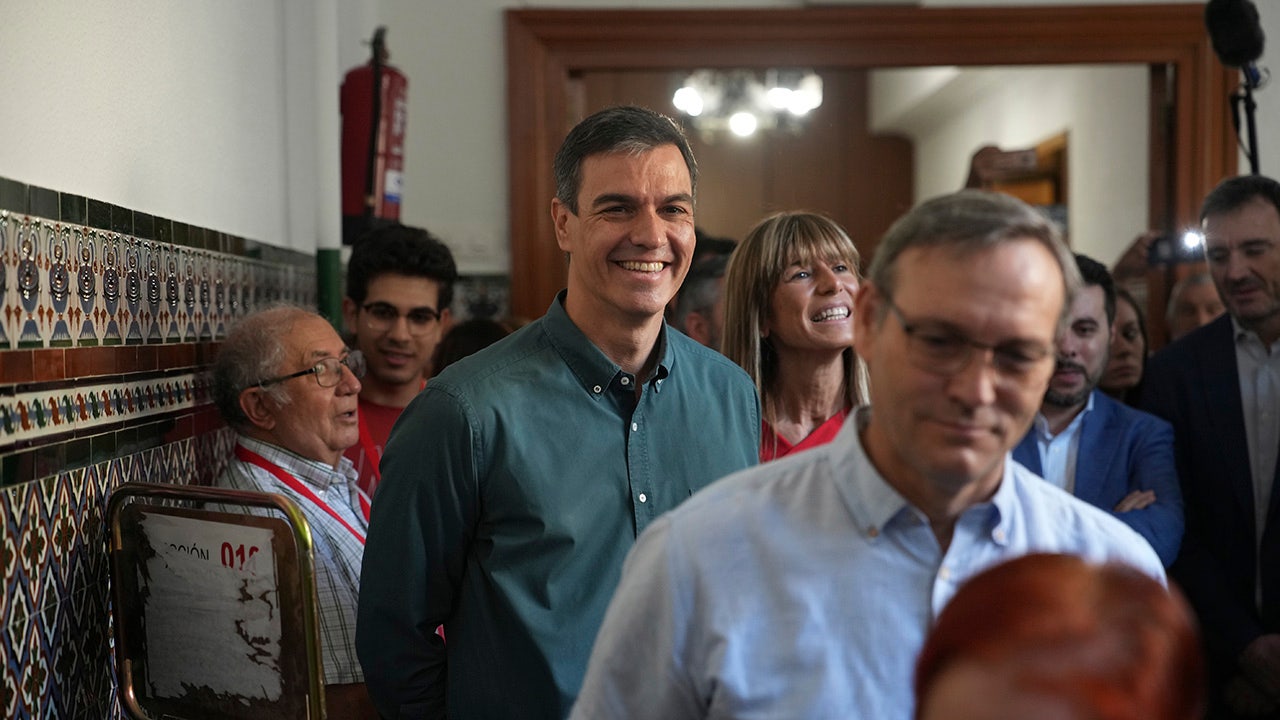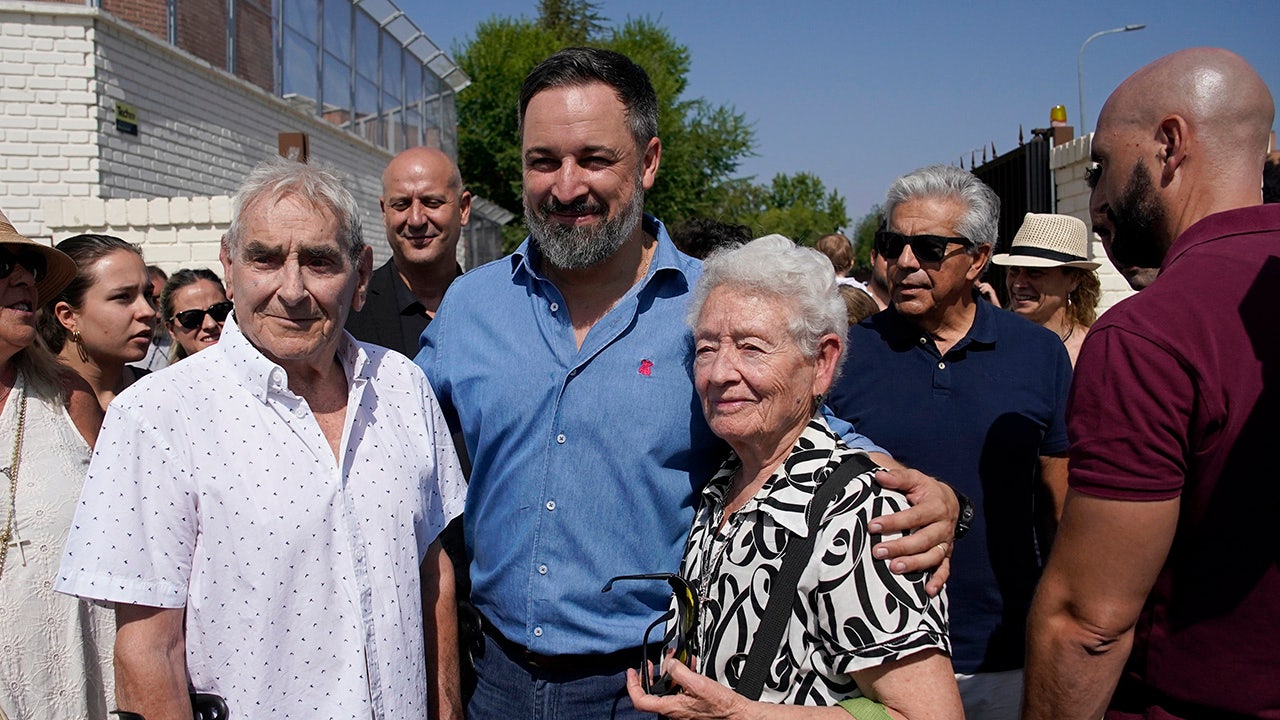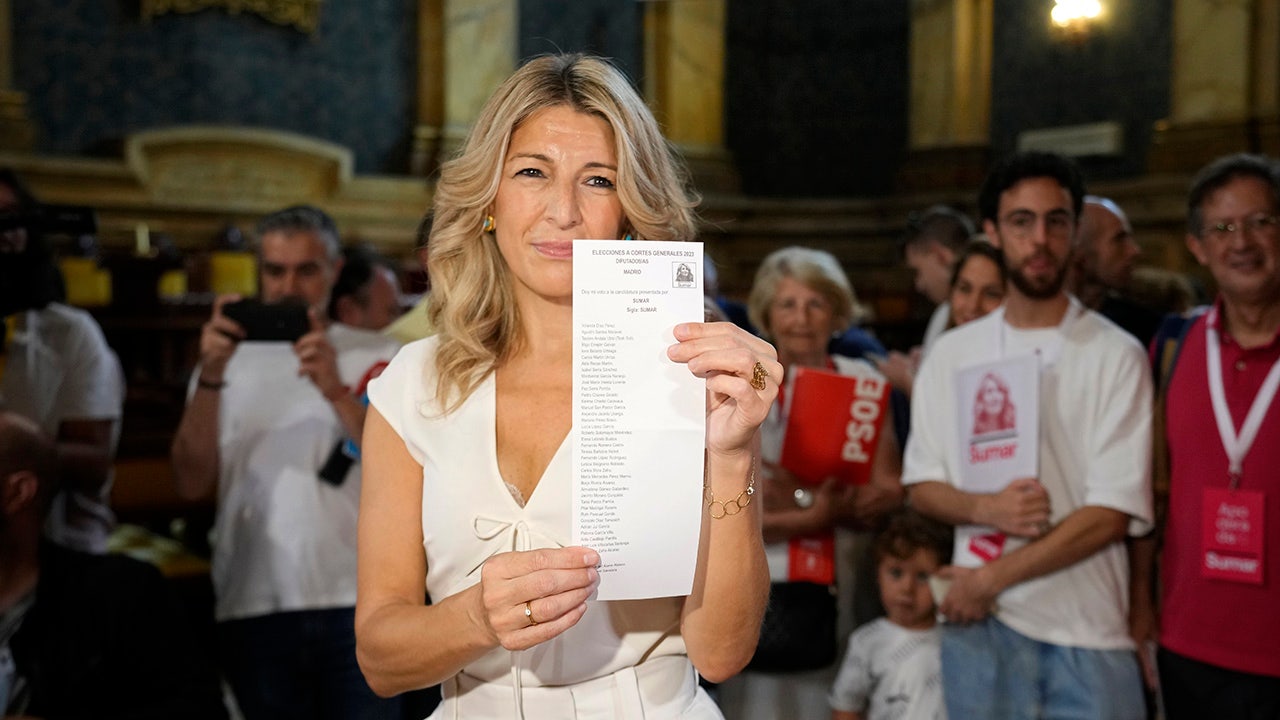Spain votes in election that could shift power-
Spanish voters are headed to the polls in the scorching heat Sunday in an uncertain election that could shift power from socialists to the far right, following a greater trend in Europe.
Spanish Prime Minister Pedro Sánchez, who has been premier since 2018, called the early election after his Spanish Socialist Workers Party and its far-left partner, Unidas Podemos, took a severe beating in local and regional elections in May. Support for established parties across the continent has waned amid the war in Ukraine, soaring post-pandemic inflation and consistently high migration, suggesting Spain could become the latest member of the European Union to swing to the political right.
Most opinion polls for Sunday’s voting have put the right-wing Popular Party, which won the May vote, ahead of the Socialists but likely needing the support of the far-right Vox party if they want to form a government, according to The Associated Press. Popular Party leader Alberto Núñez Feijóo has said he would prefer to avoid having to form that coalition, fearing that bringing Vox Party leader Santiago Abascal to power would tarnish his own reputation.
The Vox party, which campaigns against the influx of migrants and the idea of manmade climate change, has appealed to some voters for its staunch opposition to separatist movements.
U.S. MEDIA ERUPTS OVER ITALY’S FIRST FEMALE PRIME MINISTER WITH MUSSOLINI COMPARISONS: ‘RETURN OF FASCISM’

Prime Minister Pedro Sanchez arrives to vote during Spain’s general election in Madrid, Sunday July 23, 2023. (AP Photo/Emilio Morenatti)
Meanwhile, Sánchez has lost some credibility for relying on support from pro-independence parties in the Basque Country and in Catalonia, which staged an illegal referendum vote in 2017. The premier has also faced criticism for making deals with the far-left party Podemos.
The Wall Street Journal reported that Vox is projected to come in third with roughly 13% of the vote. The Popular Party is expected to garner around 34% of the votes, and the Socialists, 28%. A left-wing group known as Sumar, Socialists’ most likely coalition partner, is expected to win around 13%.

Popular Party leader Alberto Nunez Feijoo casts his ballot in Madrid, Sunday July 23, 2023. (AP Photo/Manu Fernandez)
A PP-Vox government would return a far-right force to the Spanish government for the first time since the country transitioned to democracy in the late 1970s following the nearly 40-year rule of dictator Francisco Franco. The coalition would mean another EU member has moved firmly to the right, a trend seen recently in Sweden, Finland and Italy.
Countries such as Germany and France are concerned by what such a shift would portend for EU immigration and climate policies.
EUROPEAN NATIONS SHIFT RIGHT AS ECONOMIC WOES GRIP CONTINENT

Santiago Abascal, leader of the far-right Vox party, center, poses for photos outside a polling station after casting his vote in Madrid, Sunday, July 23, 2023. (AP Photo/Andrea Comas)
Spain’s two main leftist parties are pro-EU participation. The PP’s Feijóo is also in favor of the EU, while Vox is opposed to EU interference in Spain’s affairs.
The election comes as Spain holds the EU’s rotating presidency. Sánchez had hoped to use the six-month term to showcase the advances his government had made.
An election defeat for Sánchez could see the PP taking over the EU presidency reins.

Yolanda Diaz, leader of the left-wing coalition Sumar, shows her ballot to the cameras just before voting in Madrid, Sunday, July 23, 2023. (AP Photo/Paul White)
Voter turnout is also a concern. The election takes place at the height of summer, with millions of voters likely to be vacationing away from their regular polling places.
But postal voting requests have soared with roughly 2.6 million people having requested to vote by mail, which the Journal notes is nearly three times the amount in the 2019 elections. Spanish officials have estimated a 70% election turnout. Coming on the tail of a month of heat waves, temperatures are expected to average above 35 degrees Celsius (95 degrees Fahrenheit) and to rise between 5 and 10 degrees Celsius above normal in many parts of the country Sunday. Authorities distributed fans to many of the stations.
The Associated Press contributed to this report.
(this story has not been edited by TSA Mag staff and is published from a syndicated feed.)















